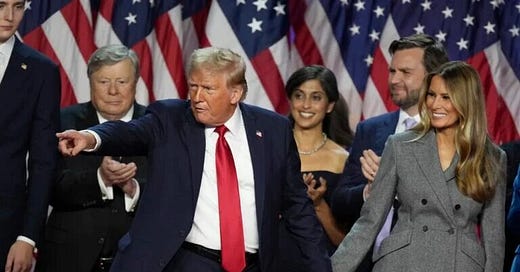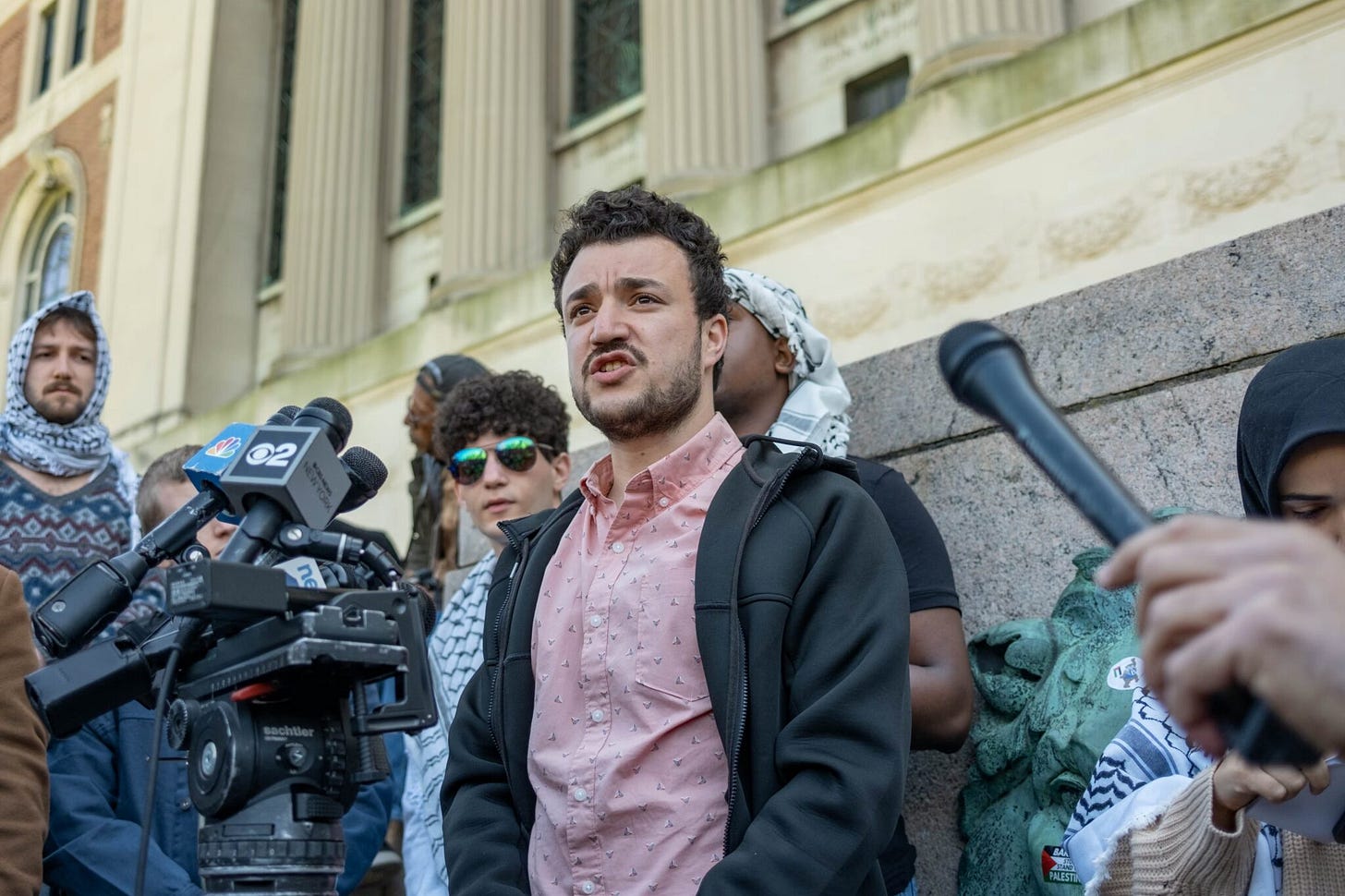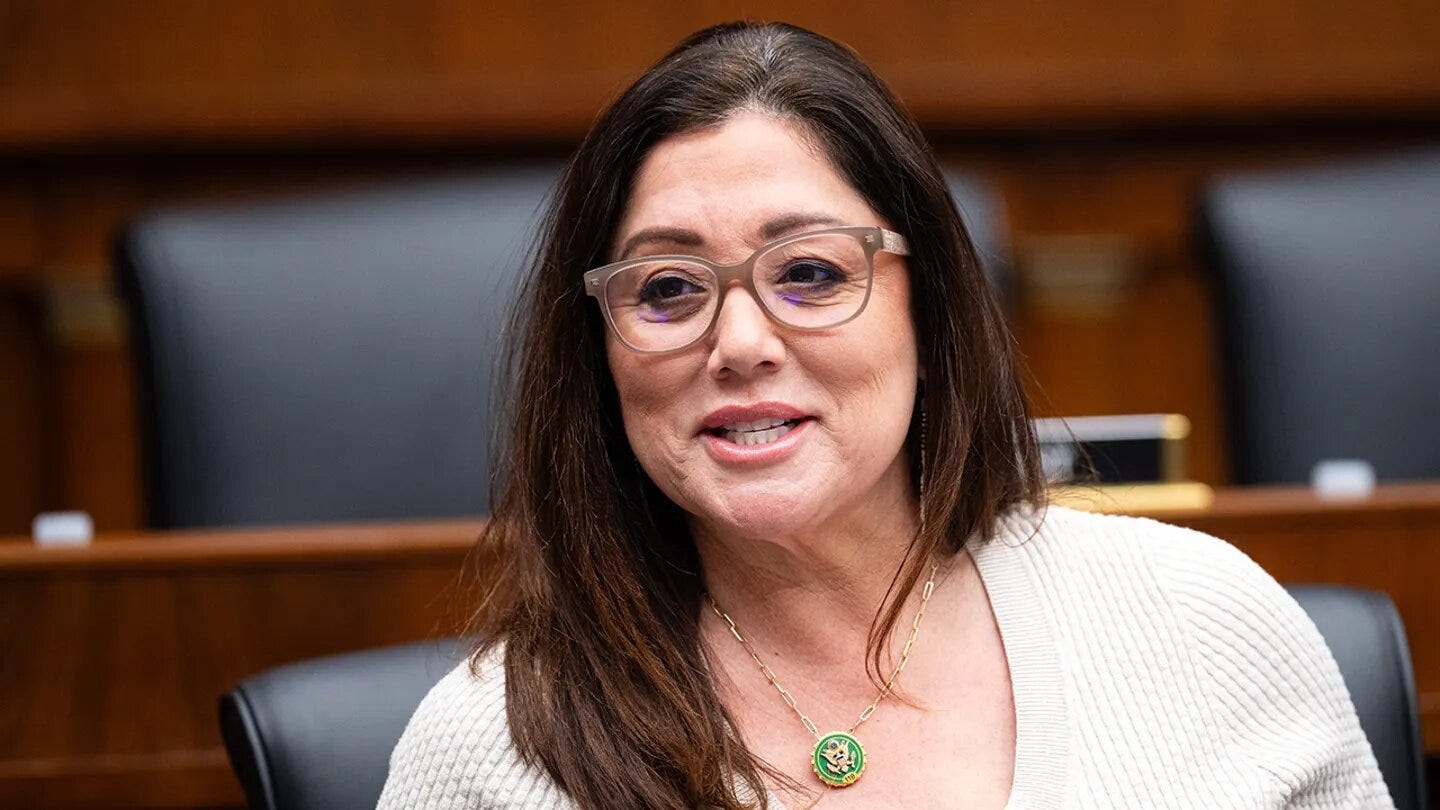Trump’s Eighth Week: Civil Liberties Under Scrutiny, Mass ICE Arrests, and Shifting Global Alliances
From the U.S. landing on a civil rights watchlist to major shifts in immigration enforcement and global trade, Trump’s second term continues to reshape domestic and foreign policy.
The eighth week of Trump’s second term has heightened tensions in global trade, with the president threatening new tariffs—taxes on imports—on the European Union’s alcohol industry. This follows previous tariffs imposed on Canada, Mexico, and China, prompting retaliatory measures from all three nations and the EU.
Domestically, the administration continues its aggressive immigration policies. U.S. Immigration and Customs Enforcement (ICE) has reported more than 32,000 arrests in Trump’s first 50 days back in office, fueling anti-immigrant sentiment amid ongoing backlash. Scrutiny intensified after ICE agents arrested Palestinian activist Mahmoud Khalil following his involvement in Gaza protests at Columbia University. Khalil, a permanent resident married to an American citizen, is currently detained in Louisiana, with the administration calling for his deportation.
In national security, Director of National Intelligence Tulsi Gabbard revoked former President Joe Biden’s access to the President’s Daily Brief, a classified intelligence report. This follows Trump’s earlier move to strip security clearances from former special counsel Jack Smith, who had led Justice Department investigations into the Jan. 6, 2021, insurrection.
As the war between Ukraine and Russia persists, a U.S.-Ukrainian delegation has proposed a 30-day ceasefire during recent talks in Saudi Arabia. It remains uncertain whether Russia will accept the plan.
Meanwhile, Secretary of State Marco Rubio announced Monday that the disbandment of the U.S. Agency for International Development (USAID) is complete, with remaining aid programs now under State Department control.
On the domestic front, the Environmental Protection Agency (EPA) has announced plans to repeal key regulations, including those limiting power plant emissions and vehicle pollution, despite a 2009 finding that greenhouse gases pose a public health risk. Additionally, the Department of Education has laid off half its workforce as part of Trump’s broader push to downsize the federal government.
In the latest Cabinet shakeup, the Senate confirmed Lori Chavez-DeRemer as labor secretary this week, with bipartisan support from both Democrats and Republicans.
Tariffs & Ukraine
Following previous reports from The Introspective on Trump’s tariffs against China, Mexico, and Canada, the administration imposed additional 25% tariffs on all steel and aluminum imports into the U.S. on Wednesday. The move has heightened trade tensions, increasing the risk of a trade war. In response, the European Union (EU) imposed retaliatory tariffs on American beef, poultry, and clothing. European leaders have warned that the escalating tariffs will drive up costs on both sides.
“We deeply regret this measure. Tariffs are taxes. They are bad for business, and even worse for consumers,” said Ursula von der Leyen, president of the European Commission, the EU’s executive branch.
Canada, the largest supplier of steel to the U.S., also responded with retaliatory tariffs on steel products while raising taxes on tools, computers, sports equipment, and cast-iron products.
Incoming Canadian Prime Minister Mark Carney indicated he would meet with Trump if the U.S. president “shows respect” for Canadian sovereignty.
“We firmly believe that in a world fraught with geopolitical and economic uncertainties, it is not in our common interest to burden our economies with tariffs,” Carney said.
Trump, in a Truth Social post, threatened additional tariffs on the EU’s alcohol industry, claiming the move would benefit American producers.
“If this tariff is not removed immediately, the U.S. will shortly place a 200% tariff on all WINES, CHAMPAGNES & ALCOHOLIC PRODUCTS COMING OUT OF FRANCE AND OTHER E.U. REPRESENTED COUNTRIES. This will be great for the Wine and Champagne businesses in the U.S.,” Trump wrote.
The stock market has fallen throughout the week amid recession fears, with the Dow Jones Industrial Average dropping 36 points, or 0.1%.
Meanwhile, in Ukraine, American and Ukrainian delegates met in Saudi Arabia this week following tensions over Ukraine’s exclusion from prior U.S.-Russia peace talks last month.
In a joint statement after the meeting, delegates announced that a proposed 30-day ceasefire could be extended “by mutual agreement of the parties.”
“The United States will communicate to Russia that Russian reciprocity is the key to achieving peace,” the statement read.
Ukrainian President Volodymyr Zelenskyy praised the talks in a televised address, reiterating Ukraine’s commitment to ending the war.
“Our position is absolutely clear: Ukraine has sought peace from the very first second of this war, and we want to do everything to achieve peace as quickly and reliably as possible—so that war never returns,” Zelenskyy said.
It remains unclear whether Russia will accept the ceasefire plan. In a report by NBC News, Russian Foreign Policy Advisor Yuri Ushakov dismissed the proposal as “nothing more than a temporary respite for the Ukrainian military.”
“Steps that imitate peaceful actions, it seems to me, are of no use to anyone,” Ushakov said, adding that Russia’s goal remains a “long-term peaceful settlement” that “takes into account the legitimate interests of our country.”
Immigration Crackdown Intensifies
The Trump administration’s crackdown on immigration continues to escalate following an announcement from U.S. Immigration and Customs Enforcement (ICE) officials that 32,000 undocumented immigrants have been arrested since Trump’s inauguration.
Todd Lyons, acting director of ICE, framed the increased arrests as part of a broader shift in the agency’s approach.
“We ended catch-and-release, and we have returned ICE to its core mission, which is arresting people who violate our immigration law,” Lyons told ABC News.
In the first 50 days of Trump’s second term, ICE officials reported arresting 14,000 convicted criminals, along with 9,800 immigrants facing pending criminal charges, 1,155 suspected gang members, and 44 alleged foreign fugitives. Nearly 9,000 additional individuals arrested were not initially targeted but were considered “collateral” detentions.
The administration’s immigration policies sparked further backlash this week after the arrest of Palestinian activist Mahmoud Khalil—known for leading Columbia University’s protests in support of Gaza. The arrest follows The Introspective’s previous report on Trump’s threats to deport students involved in “illegal protests.”
Khalil’s detention sent shockwaves through activist communities, as he is a permanent U.S. resident. His wife, a U.S. citizen who is eight months pregnant, was also nearly arrested by ICE agents.
“This is part of a broader attempt to intimidate people from protesting in ways that the White House doesn’t like,” said Michael Roth, president of Wesleyan University in Connecticut, in an interview with Politico.
Trump praised Khalil’s arrest in a Truth Social post, calling it “the first arrest of many to come.”
“ICE proudly apprehended and detained Mahmoud Khalil, a Radical Foreign Pro-Hamas Student on the campus of Columbia University,” Trump wrote. “This is the first arrest of many to come. We know there are more students at Columbia and other universities across the country who have engaged in pro-terrorist, anti-Semitic, anti-American activity, and the Trump administration will not tolerate it. Many are not students—they are paid agitators. We will find, apprehend, and deport these terrorist sympathizers from our country—never to return again. If you support terrorism, including the slaughtering of innocent men, women, and children, your presence is contrary to our national and foreign policy interests, and you are not welcome here. We expect every one of America’s colleges and universities to comply. Thank you!”
Secretary of State Marco Rubio also reacted in a post on X, stating that the administration “will be revoking the visas and/or green cards of Hamas supporters in America so they can be deported.”
In a report by The Associated Press, Rubio rejected claims that Khalil’s arrest was a free speech issue, arguing that residency is a privilege, not a right.
“This is about people who don’t have a right to be in the United States to begin with. No one has a right to a student visa. No one has a right to a green card,” Rubio said.
A federal judge later blocked Khalil’s deportation, though he remains in ICE custody in Louisiana. His detention has raised concerns among immigration advocates, as ICE facilities in the state have faced repeated allegations of abuse against detainees.
Domestic Policy Shifts
The Department of Education fired more than 1,300 employees on Tuesday, cutting 50% of its staff as the Trump administration continues its initiative to downsize the federal government.
Education Secretary Linda McMahon said the firings would improve efficiency and would not affect programs such as student loans, Pell Grants, or funding for special-needs students.
“Today’s reduction in force reflects the Department of Education’s commitment to efficiency, accountability, and ensuring that resources are directed where they matter most: to students, parents, and teachers,” McMahon said in a statement.
“I appreciate the work of the dedicated public servants and their contributions to the department. This is a significant step toward restoring the greatness of the United States education system.”
The mass layoffs angered many, as several regional offices—including those in New York, San Francisco, and Boston—were either shut down or had their staff significantly reduced.
“We will not stand idly by while this regime pulls the wool over the eyes of the American people,” said Sheria Smith, president of the American Federation of Government Employees Local 252, which represents nearly 3,000 employees, in an interview with The New York Times.
Smith vowed to challenge the mass firings, accusing Trump of having “no respect for the thousands of workers who have dedicated their careers to serving their fellow Americans.”
The American Federation for Children, a nonprofit that assists low-income families with K-12 education, praised the layoffs, calling them a step toward “a golden age in American education.”
“This news is another signal that the bureaucratic state is coming to an end in America, ushering in a golden age in American education that is centered on returning education to the states and parents,” the organization said in a statement.
“The time is now for school choice in every state and for dismantling the federal education bureaucracy.”
Following the layoffs, 20 states and Washington, D.C., filed a lawsuit seeking to block the administration from disbanding the department.
Meanwhile, the Environmental Protection Agency announced Wednesday it would repeal various regulations, calling it “the most consequential day of deregulation in U.S. history.”
“Today is the greatest day of deregulation our nation has seen. We are driving a dagger straight into the heart of the climate change religion to drive down the cost of living for American families, unleash American energy, bring auto jobs back to the U.S., and more,” EPA Administrator Lee Zeldin said in a press release.
“Alongside President Trump, we are living up to our promises to unleash American energy, lower costs for Americans, revitalize the American auto industry, and work hand in hand with our state partners to advance our shared mission,” he added.
Among the regulations being repealed are policies from the Biden administration that limited pollution from power plants, which are the second-largest source of greenhouse gases after transportation. The administration also plans to roll back regulations on vehicle emissions, challenging current EPA rules that limit air pollution from car tailpipes. Additionally, the EPA is reconsidering a 2009 determination that greenhouse gas emissions threaten public health.
Critics were quick to respond, with many arguing that loosening air pollution regulations contradicts the EPA’s mission.
“This signal to deregulate air pollution is diametrically opposed to the obligation the EPA has to protect public health,” said Conrad Schneider, senior director at the Clean Air Task Force, in an interview with NPR.
In other policy developments, the Senate confirmed Lori Chavez-DeRemer as secretary of labor in a bipartisan vote. Chavez-DeRemer has pledged to uphold Trump’s policies regarding businesses and unions.
“My guiding principle will be President Trump’s guiding principle: ensuring a level playing field for businesses, unions, and, most importantly, the American worker,” she said in February.
Civil Liberties, Government Purges, & Access Revoked
Continuing The Introspective’s coverage of the U.S. Agency for International Development (USAID), Secretary of State Marco Rubio announced the agency’s disbandment is complete, with more than 83% of its programs eliminated.
“After a six-week review, we are officially canceling 83% of the programs at USAID,” Rubio wrote in a post on X.
The Trump administration intends to transfer the remaining programs to the State Department, a move applauded by Elon Musk, head of the Department of Government Efficiency (DOGE).
“Tough, but necessary. Good working with you. The important parts of USAID should always have been with the Dept. of State,” Musk wrote in response to Rubio’s post.
Director of National Intelligence Tulsi Gabbard revoked security clearances for several former Biden administration officials, including former Secretary of State Antony Blinken, former National Security Adviser Jake Sullivan, and former Deputy Attorney General Lisa Monaco. The move follows an earlier report detailing the revocation of security clearances for former special counsel Jack Smith, who—like Monaco—was involved in investigations related to the Jan. 6, 2021, insurrection.
“I have revoked security clearances and barred access to classified information for Antony Blinken, Jake Sullivan, Lisa Monaco, Mark Zaid, Norman Eisen, Letitia James, Alvin Bragg, and Andrew Weissmann, along with the 51 signers of the Hunter Biden ‘disinformation’ letter,” Gabbard wrote on X.
Additionally, former President Joe Biden will no longer receive the President’s Daily Brief, the intelligence summary provided to both current and former presidents.
That same day, the United States was added to the CIVICUS Monitor Watchlist, a platform that tracks and publicizes threats to democracy worldwide. The listing follows backlash to the Trump administration’s policies, which the organization described as an “assault on democratic norms and global cooperation.”
“This is an unparalleled attack on the rule of law in the United States, not seen since the days of McCarthyism in the 20th century. Restrictive executive orders, unjustifiable institutional cutbacks, and intimidation tactics through threatening pronouncements by senior officials in the administration are creating an atmosphere to chill democratic dissent, a cherished American ideal,” said Mandeep Tiwana, interim co-secretary general of CIVICUS, in a press release.
“The Trump administration seems hellbent on dismantling the system of checks and balances, which are the pillars of a democratic society.”
In addition to the United States, other countries added to the watchlist include the Democratic Republic of the Congo, Italy, Pakistan, and Serbia.







